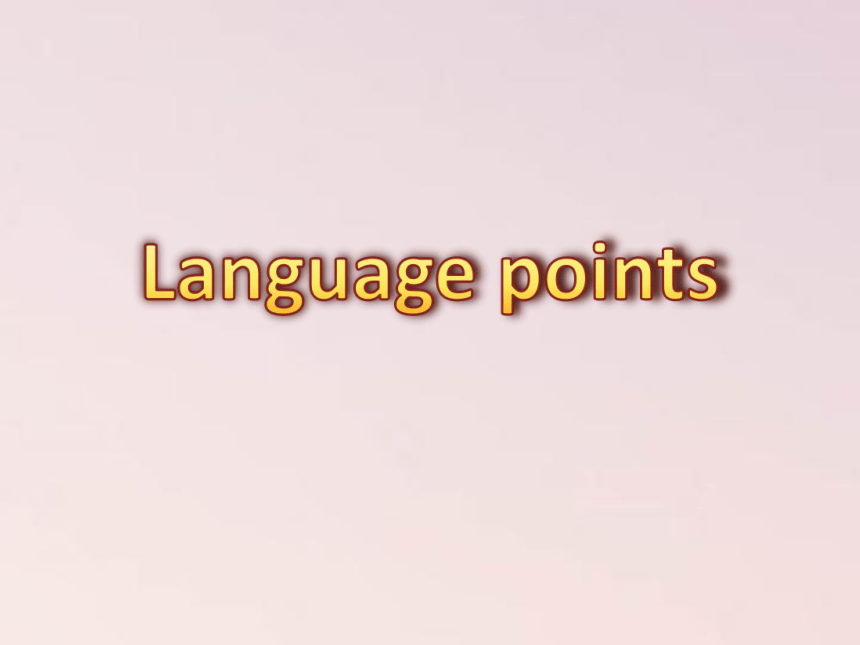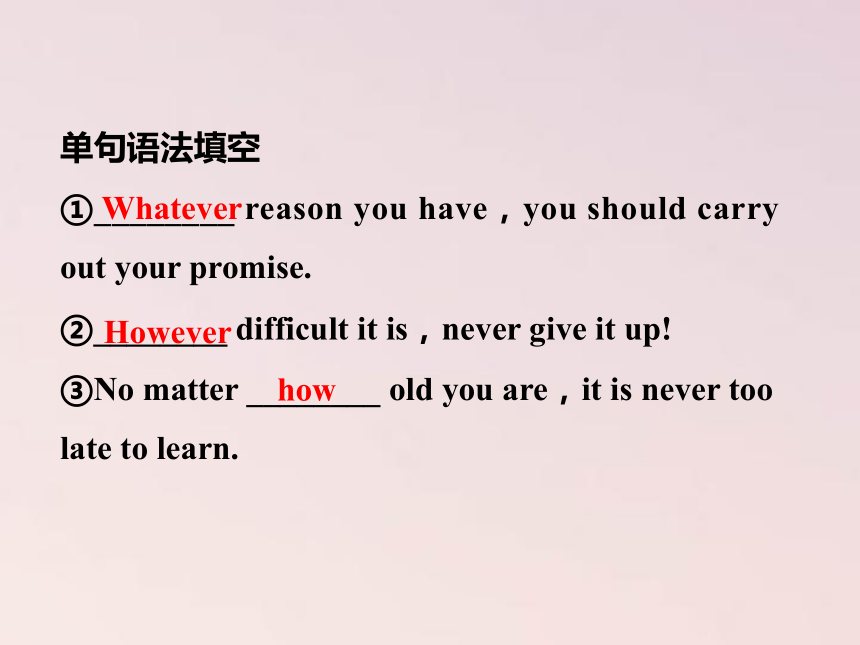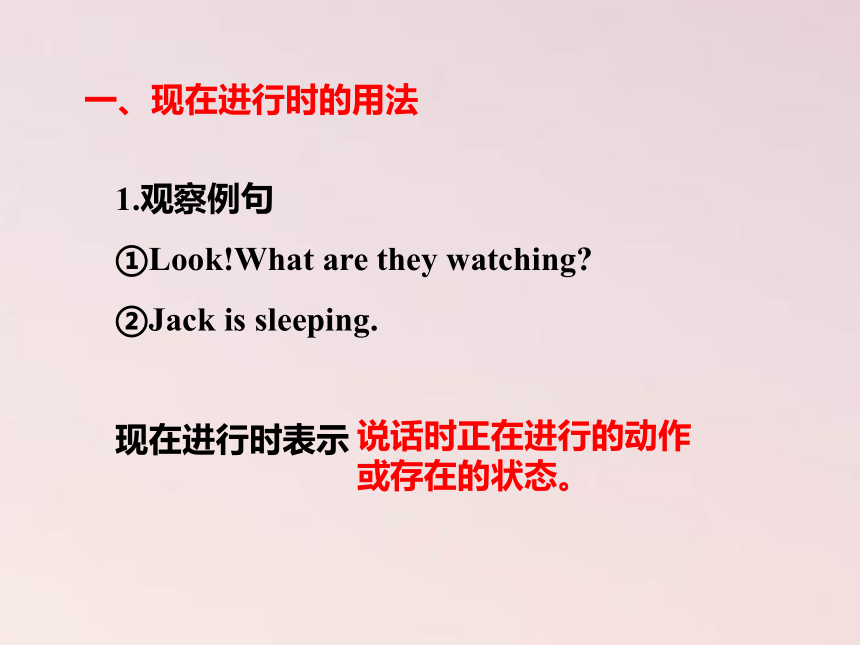2017-2018学年人教版必修1Unit 3 Travel Journal Section II (共33张PPT)
文档属性
| 名称 | 2017-2018学年人教版必修1Unit 3 Travel Journal Section II (共33张PPT) |  | |
| 格式 | zip | ||
| 文件大小 | 411.5KB | ||
| 资源类型 | 教案 | ||
| 版本资源 | 人教版(新课程标准) | ||
| 科目 | 英语 | ||
| 更新时间 | 2017-10-01 19:25:51 | ||
图片预览












文档简介
课件33张PPT。The Mekong River is called _____________ in China. It goes through ____________ _____, _________, _________, _________ and pours into the ________________. Lancang RiverMyanmarLaosThailandCambodiaVietnamSouth China SeaFill in the blanks with the help of illustrationsLanguage points1.He is so stubborn that no one can persuade him to do anything.
拓展
so+adj./adv.+that
so+adj.+a(n)+n.+that
so+many/few+n.(pl.)+that
so+much/little+un.+that 辨析
such+a(an)+adj.+n.+that...
=so+adj.+a(an)+n.+that...
such+adj.+un.+that...
such+adj.+n.(pl.)+that...用so或such填空
①I made ________ many mistakes that I failed in the exam.
②It is impossible for ________ little children to do ________ much work.
sosuch so 2.A determined person always tries to finish the job,no matter how hard it is.
拓展
no matter +疑问代词或副词,意为“无论,不管”,引导让步状语从句,“疑问代词或疑问副词+ever”,“疑问代词+ever”还可引导名词性从句。单句语法填空
①________ reason you have,you should carry out your promise.
②________ difficult it is,never give it up!
③No matter ________ old you are,it is never too late to learn.
WhateverHowever how
1.观察例句
①Look!What are they watching?
②Jack is sleeping.
现在进行时表示一、现在进行时的用法说话时正在进行的动作或存在的状态。2.③Mary is writing a new book about stories in school these days.?
④I am helping my dad on the farm this summer vacation.?
现在进行时表示现阶段一直在进行的动作,虽然说话时动作不一定正在进行。
3.⑤He is always changing his mind.
⑥He is forever thinking of others.
现在进行时与副词always,repeatedly,constantly,
forever 等连用,常常含有赞成、厌烦、生气等感彩。4.⑦I don’t know what you are talking about.?
⑧You don’t believe it?You know I am telling the truth.?
表示刚刚过去的动作,只适用于口语中某些表示说话的动词,如tell,talk,say,speak等。1.英语中一些表示“状态或感官”的动词通常不用于进行时:
(1)表示“存在或位置”,如:lie,stand,exist等。
单句填空:
①Hebei Province (lie) in the north of China.?
(2)表示“所属”关系,如:have,own,possess,belong to等。
单句填空:
②Who (own) the new car??二、不用于进行时的几种情况liesowns(3)表示“感官”,如:see,hear,smell,taste,sound,look,feel,seem,appear等。
单句填空:
③I can (hear)you.?
④The food (taste)delicious.?
⑤The song (sound)nice and sweet.?heartastessounds(4)表示“喜欢,反对,厌恶”,如:love,like,hate,want,
dislike,envy等。
如:
⑥We love our motherland deeply.
⑦They envy her good fortune.
1.动词come,go,arrive,leave,start,begin,return等的现在进行时可以表示将来的动作,常有“意图”、“安排”或“打算”的含义。这种用法比较生动,给人一种期待感。它常表示最近或较近的将来会发生的动作。
They are coming here this afternoon.
When are you starting?三、现在进行时表将来的用法2.除上述动词外,还有一些动词也可用现在进行时表示将来,如do,buy,meet,have,play,spend等,此时句中一般要有表示将来的时间状语。
What are you doing next Sunday?
My mother is buying me a bike soon.
I’m meeting you after class.3.偶尔也表示较远的将来。
When I grow up,I’m joining the army.
4.现在进行时也可用在时间、条件或原因状语从句中表示将来。
If they are not going,I won’t go,either.1.will/shall do表达单纯的将来时,是对未来事情发生的一种“预见性”。可用于说话时才想到或决定的事。will用于各种人称,而shall仅用于第一人称。
—I’m sorry.I forgot to post the letter for you.
—Never mind.I will post it myself this afternoon.四、其他几种表示将来的结构2.be going to do用来表示近期或事先考虑要做的事情,以及有迹象表明将要发生的事。
Look at those black clouds;there’s going to be a storm.
3.be to do表示预定、按计划或安排将要发生的动作。
The meeting is to take place early tomorrow.4.be about to do表示马上就要发生的事,不与具体的时间状语连用,但可用于句型be about to do...when...“即将做某事就在这时……”。
Be quiet!The film is about to start.
5.一般现在时可表示按时刻表、日程表的安排所发生的将来的动作,也可用于状语从句中表示将来。
The next plane leaves at 6 p.m.1.现在进行时表示将来与表示进行的区别。
(1)表示将来时,通常用瞬间性动词。
The man is arriving soon.(表示将来的动作)
(2)表示进行时,通常用延续性动词。
He is reading a novel now.(表示正在进行的动作)五、难点突破2.现在进行时表示将来与一般现在时表示将来的区别。
(1)现在进行时表示将来,计划性较强,往往暗示该动作是可以改变的。
Our flight is taking off and let's hurry up; or we will miss it.(动词进行时表示将来的动作)(2)一般现在时表示将来。
①客观性较强,多指按时刻表或规定要发生的动作或事件;多为表示“出发,到达”等的动词短语,如arrive, leave, start, go out, take off等。
The flight to Shanghai takes off at 3:00 p. m..(时刻表)②用于条件、时间及让步状语从句中。
(1)It will be five years before the project is completed.(时间状语从句)
(2)I'll go camping if it is fine tomorrow.(条件状语从句)语法单句填空
1.Hurry up! Time is ________(run)out. And you will be late again.答案:running 考查动词的时态。Time is running out.“时间就要没有了”。现在进行时表将来。2.—When shall we leave for Shanghai?
—We ________(leave) very soon.答案:are leaving 考查动词的时态。句意:——我们什么时候动身去上海?——我们很快就走。leave,arrive,come等少数瞬间动词在表示按计划、安排将要发生的动作时,用现在进行时表示将来的动作。
3.—I'm sorry. I forgot to post the letter for you.
—Never mind. I ________(post) it myself this afternoon.答案:will post 考查动词的时态。will意在表示单纯将来,用于说话时才决定的事情。4.—Ready to give up guessing, Sandy?
—No, no, hold on! I think I ________(arrive) at the answer now.答案:am arriving 考查动词的时态。句意:——桑迪,准备放弃猜吗?——不,不,别挂断电话!我想我就要找到答案了。通过对话内容可知,arrive表位置移动的词,用进行时表将来。5.—When are you leaving for Shanghai?
—My plane ________(take) off at 10.答案:takes 考查动词的时态。当根据(火车、轮船、飞机等)时刻表将要发生的动作时,要用一般现在时表示将来。
6.The Russian President ________(visit) China next month.
答案:is to visit 考查动词的时态。be to do表示按计划或安排将要发生的事。7.If it ________(rain), we'll climb the hill tomorrow.答案:doesn't rain 考查动词的时态。句意:如果明天不下雨,我们将去爬山。主、从句谓语动作都未发生时,从句用一般现在时表将来。Today we learned the usage of the present continuous tense for future use. But please pay attention. Not all verbs can be used in the “-ing” form to express future actions. Such verbs as come, go, leave, fly, stay, meet, die , see etc. are mainly used in the “-ing” form to express plans. After class you must remember the words we have learned and practice more about the present continuous tense.
拓展
so+adj./adv.+that
so+adj.+a(n)+n.+that
so+many/few+n.(pl.)+that
so+much/little+un.+that 辨析
such+a(an)+adj.+n.+that...
=so+adj.+a(an)+n.+that...
such+adj.+un.+that...
such+adj.+n.(pl.)+that...用so或such填空
①I made ________ many mistakes that I failed in the exam.
②It is impossible for ________ little children to do ________ much work.
sosuch so 2.A determined person always tries to finish the job,no matter how hard it is.
拓展
no matter +疑问代词或副词,意为“无论,不管”,引导让步状语从句,“疑问代词或疑问副词+ever”,“疑问代词+ever”还可引导名词性从句。单句语法填空
①________ reason you have,you should carry out your promise.
②________ difficult it is,never give it up!
③No matter ________ old you are,it is never too late to learn.
WhateverHowever how
1.观察例句
①Look!What are they watching?
②Jack is sleeping.
现在进行时表示一、现在进行时的用法说话时正在进行的动作或存在的状态。2.③Mary is writing a new book about stories in school these days.?
④I am helping my dad on the farm this summer vacation.?
现在进行时表示现阶段一直在进行的动作,虽然说话时动作不一定正在进行。
3.⑤He is always changing his mind.
⑥He is forever thinking of others.
现在进行时与副词always,repeatedly,constantly,
forever 等连用,常常含有赞成、厌烦、生气等感彩。4.⑦I don’t know what you are talking about.?
⑧You don’t believe it?You know I am telling the truth.?
表示刚刚过去的动作,只适用于口语中某些表示说话的动词,如tell,talk,say,speak等。1.英语中一些表示“状态或感官”的动词通常不用于进行时:
(1)表示“存在或位置”,如:lie,stand,exist等。
单句填空:
①Hebei Province (lie) in the north of China.?
(2)表示“所属”关系,如:have,own,possess,belong to等。
单句填空:
②Who (own) the new car??二、不用于进行时的几种情况liesowns(3)表示“感官”,如:see,hear,smell,taste,sound,look,feel,seem,appear等。
单句填空:
③I can (hear)you.?
④The food (taste)delicious.?
⑤The song (sound)nice and sweet.?heartastessounds(4)表示“喜欢,反对,厌恶”,如:love,like,hate,want,
dislike,envy等。
如:
⑥We love our motherland deeply.
⑦They envy her good fortune.
1.动词come,go,arrive,leave,start,begin,return等的现在进行时可以表示将来的动作,常有“意图”、“安排”或“打算”的含义。这种用法比较生动,给人一种期待感。它常表示最近或较近的将来会发生的动作。
They are coming here this afternoon.
When are you starting?三、现在进行时表将来的用法2.除上述动词外,还有一些动词也可用现在进行时表示将来,如do,buy,meet,have,play,spend等,此时句中一般要有表示将来的时间状语。
What are you doing next Sunday?
My mother is buying me a bike soon.
I’m meeting you after class.3.偶尔也表示较远的将来。
When I grow up,I’m joining the army.
4.现在进行时也可用在时间、条件或原因状语从句中表示将来。
If they are not going,I won’t go,either.1.will/shall do表达单纯的将来时,是对未来事情发生的一种“预见性”。可用于说话时才想到或决定的事。will用于各种人称,而shall仅用于第一人称。
—I’m sorry.I forgot to post the letter for you.
—Never mind.I will post it myself this afternoon.四、其他几种表示将来的结构2.be going to do用来表示近期或事先考虑要做的事情,以及有迹象表明将要发生的事。
Look at those black clouds;there’s going to be a storm.
3.be to do表示预定、按计划或安排将要发生的动作。
The meeting is to take place early tomorrow.4.be about to do表示马上就要发生的事,不与具体的时间状语连用,但可用于句型be about to do...when...“即将做某事就在这时……”。
Be quiet!The film is about to start.
5.一般现在时可表示按时刻表、日程表的安排所发生的将来的动作,也可用于状语从句中表示将来。
The next plane leaves at 6 p.m.1.现在进行时表示将来与表示进行的区别。
(1)表示将来时,通常用瞬间性动词。
The man is arriving soon.(表示将来的动作)
(2)表示进行时,通常用延续性动词。
He is reading a novel now.(表示正在进行的动作)五、难点突破2.现在进行时表示将来与一般现在时表示将来的区别。
(1)现在进行时表示将来,计划性较强,往往暗示该动作是可以改变的。
Our flight is taking off and let's hurry up; or we will miss it.(动词进行时表示将来的动作)(2)一般现在时表示将来。
①客观性较强,多指按时刻表或规定要发生的动作或事件;多为表示“出发,到达”等的动词短语,如arrive, leave, start, go out, take off等。
The flight to Shanghai takes off at 3:00 p. m..(时刻表)②用于条件、时间及让步状语从句中。
(1)It will be five years before the project is completed.(时间状语从句)
(2)I'll go camping if it is fine tomorrow.(条件状语从句)语法单句填空
1.Hurry up! Time is ________(run)out. And you will be late again.答案:running 考查动词的时态。Time is running out.“时间就要没有了”。现在进行时表将来。2.—When shall we leave for Shanghai?
—We ________(leave) very soon.答案:are leaving 考查动词的时态。句意:——我们什么时候动身去上海?——我们很快就走。leave,arrive,come等少数瞬间动词在表示按计划、安排将要发生的动作时,用现在进行时表示将来的动作。
3.—I'm sorry. I forgot to post the letter for you.
—Never mind. I ________(post) it myself this afternoon.答案:will post 考查动词的时态。will意在表示单纯将来,用于说话时才决定的事情。4.—Ready to give up guessing, Sandy?
—No, no, hold on! I think I ________(arrive) at the answer now.答案:am arriving 考查动词的时态。句意:——桑迪,准备放弃猜吗?——不,不,别挂断电话!我想我就要找到答案了。通过对话内容可知,arrive表位置移动的词,用进行时表将来。5.—When are you leaving for Shanghai?
—My plane ________(take) off at 10.答案:takes 考查动词的时态。当根据(火车、轮船、飞机等)时刻表将要发生的动作时,要用一般现在时表示将来。
6.The Russian President ________(visit) China next month.
答案:is to visit 考查动词的时态。be to do表示按计划或安排将要发生的事。7.If it ________(rain), we'll climb the hill tomorrow.答案:doesn't rain 考查动词的时态。句意:如果明天不下雨,我们将去爬山。主、从句谓语动作都未发生时,从句用一般现在时表将来。Today we learned the usage of the present continuous tense for future use. But please pay attention. Not all verbs can be used in the “-ing” form to express future actions. Such verbs as come, go, leave, fly, stay, meet, die , see etc. are mainly used in the “-ing” form to express plans. After class you must remember the words we have learned and practice more about the present continuous tense.
